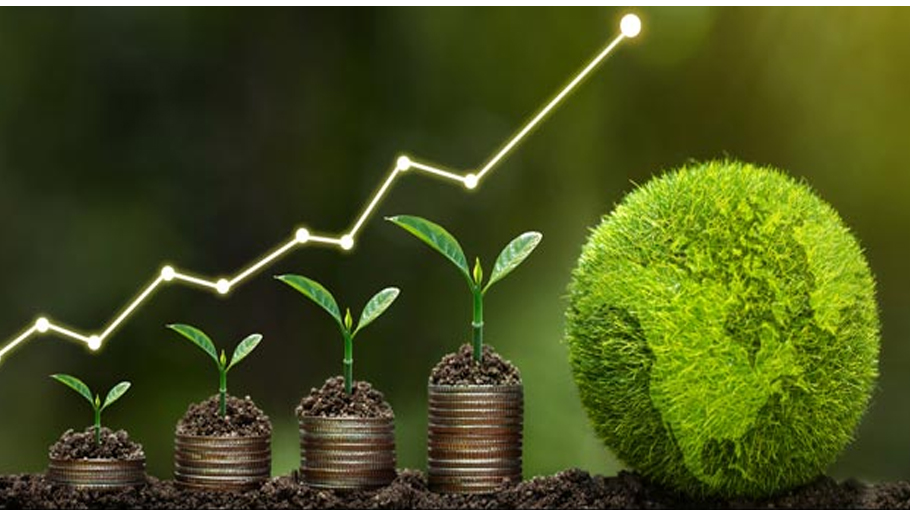Wait for vulnerability-based climate funding or build capacity first?

The unprecedented speed of climate change holds significant implications as it is not impeded by bureaucratic barriers resulting in profound impacts on every corner of the world.
In Bangladesh, Rangpur experienced a record-breaking amount of rain in 2020, with 433 mm falling in just 12 hours – the highest in 60 years. According to Bangladesh Meteorological Department BMD Rajshahi recorded 244 mm of rainfall in 2023 – the highest to date for the district in a decade. Climate scientists predict increased extreme rainfall events from 2041-2060, deepening the adverse effects of climate change since we are only two decades away from these scenarios.
Climate resilience refers to the ability to effectively respond to and recover from climate-related hazards. A climate-resilient society would be low-carbon and prepared to handle the challenges of a warmer world. Is our drainage system prepared for heavy rainfall or cyclones each year? The question underscores why Bangladesh focuses more on adapting to climate change and addressing rural needs over mitigation, in contrast to the global trend. How can we implement climate change adaptation measures, especially if we lack financing?
It is estimated that 113 interventions require a total investment of $230 billion over 27 years, averaging about $8.5 billion per year. The country's internal financing alone is insufficient. To address this resource gap Bangladesh needs to seek external funding from sources such as the Green Climate Fund (GCF), the Global Environment Facility (GEF),Special Climate Change Fund, Least Development Countries Fund, Adaptation Fund, and CVF and V20 Multi-Donor Fund,The readiness of Bangladesh to receive this funding is yet uncertain.
There are no straightforward solutions for Bangladesh's climate resilience challenges, but there are opportunities and ways forward. One of the major challenges are the inter-ministerial coordination and institutional capacity development, as well as the retention of experts. Without the capacity to prepare strong proposals, Bangladesh may not receive the necessary funding. There is no alternative to receiving funds other than preparing a good proposal and being qualified. As the 8th most vulnerable country out of 138 countries, simply ranking high in vulnerability does not guarantee the disbursal of funds. This situation brings to mind the old phrase "chicken or egg" - which comes first? Should the focus be on developing the capacity of organizations and individuals, or should we wait for funding to be disbursed based on vulnerability ranking?
Here, the debate should not deprioritize campaigning and lobbying for climate justice; more importantly, it should emphasize the importance of strengthening institutional capacity to seek and obtain funding.
Another challenge stuck inbetween climate politics. The global negotiation process is done on a group basis in the COP. As no country negotiates in the UNFCCC as a single entity, Bangladesh negotiates as a member of the Least Developed Countries (LDC) group. Bangladesh need to strategically navigate its new status to maximize benefits while addressing emerging challenges stemming from the politics of climate change. Its time for Bangladesh to focus on joining new partnerships to leverage its upcoming status of graduating from the LDC group and participating in the G20, while also leveraging its leadership role in the CVF (Climate Vulnerable Forum) and its action with SAARC (South Asian Association for Regional Cooperation). This will help ensure that Bangladesh's unique perspectives are adequately represented within a group. Bangladesh can also be part of AOSIS (Alliance of Small Island States) discussions due to common vulnerabilities with AOSIS members in terms of climate impacts such as sea-level rise and extreme weather events.
To effectively utilize technology, update knowledge, and oversee activities across ministries, Bangladesh should enhance inter-ministerial coordination and establish a shared resource pool. This will benefit Bangladesh in observing ODA and climate budgets, as well as implementing a unified approach for long-term policies.
Climate action prioritization is critical for Bangladesh, and the country needs to be prepared to decline certain initiatives encouraged by development partners while enhancing its capacity to qualify for various funds.
In addition to understanding the global climate financial architecture , it is crucial to develop the technical capacity for quantifying risk in climate action. Bangladesh could explore various innovative financing options, such as initiating a unique approach to conserving the Sundarbans as a bridge fund. The country should establish checkpoints, prioritize funding mechanisms align capacity development and project appraisals based on its priority list. As key components of an innovative funding strategy, how about taking into account the issuing of green and blue bonds as well as private sector capital investment? Bangladesh should communicate to development partners to differentiate ODA funding from the climate change committed budget.
Lastly, it is essential to stress the urgency of action on climate change. Since the Industrial Revolution, global temperatures have increased by about 0.2°C per decade. Global surface temperatures in 2021 are approximately 1.1°C warmer than in 1880. This trend of temperature rise is expected to rapidly grow and will very likely rise above 1.5°C above by 2040, according to the landmark IPCC report. The effects of GHG emissions will persist despite immediate action, and the rising temperatures will have severe consequences, particularly for low-lying countries such as Bangladesh. The slow progress of funds, policies, and decisions is not fully aligned with the rapid impact of climate change, despite declaring a climate emergency. Actions and commitments are not in sync. Urgent action and consistent strategy are necessary, and drama without genuine commitment will not suffice.
Kaniz Fatema is a graduate student in Climate Science and Solution of Northern Arizona University(NAU), USA She can be reached at kanizmango@gmail.com




